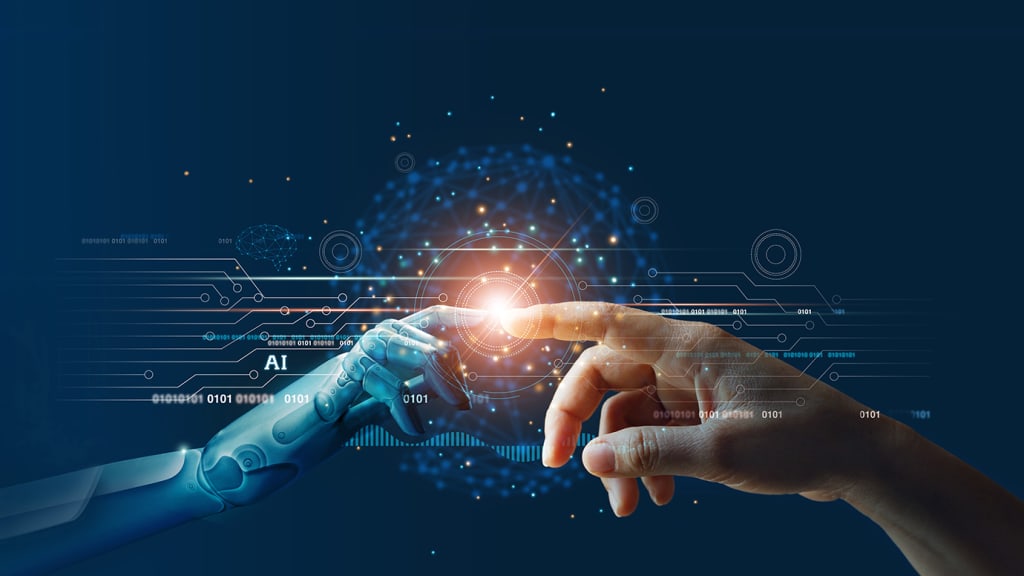The year of the artificial intelligence era
The year of modern technology

Artificial Intelligence (AI) is a field of study that has gained increasing prominence in recent years. With technological advances and the growing need to automate processes, AI has become a fundamental tool for many areas, from industry to medicine.
AI consists of creating machines capable of performing tasks that would normally require human intelligence. This is possible through the development of algorithms and mathematical models that allow machines to learn from data and make decisions based on this learning.
One of the main benefits of AI is the ability to process large amounts of data quickly and efficiently. This allows companies and institutions to use AI to analyze complex information and make more accurate and informed decisions.
In healthcare, for example, AI has been used to help diagnose diseases by analyzing medical images and patient histories. AI can also be used to improve the efficiency of hospital processes, such as stock management and appointment scheduling.
In industry, AI has been used to optimize production and reduce costs. By analyzing data, machines can identify patterns and make adjustments in real time, increasing the efficiency of production processes.
In the field of education, AI is also proving to be a promising tool. By using machine learning algorithms, it is possible to personalize teaching according to the needs of each student, making learning more efficient and individualized.
Despite the advances and benefits of AI, it is important to note that there are also challenges and ethical concerns related to this technology. One of the main challenges is to ensure that AI is used responsibly and transparently, avoiding discrimination and injustice.
In addition, it is also necessary to guarantee the security of AI systems, since they can be vulnerable to cyber attacks. It is essential to develop protection and encryption mechanisms to prevent sensitive information from being compromised.
Another concern is the replacement of jobs by intelligent machines. Although AI can automate repetitive tasks and increase productivity, it is important to ensure that there are retraining and outplacement policies for affected workers.
One of the main applications of AI is in the medical field. By using machine learning algorithms, doctors can obtain more accurate and faster diagnoses, identify diseases at early stages and develop personalized treatments for each patient. AI can also be used to monitor patients' health, predict complications and help make clinical decisions.
Another area in which AI has excelled is the automotive industry. With the development of autonomous cars, AI has the potential to revolutionize the way we get around. These vehicles are able to identify obstacles, interpret road signs and make driving decisions autonomously. What's more, they can communicate with each other, making traffic safer and more efficient.
In the field of education, AI is also playing an important role. Through virtual assistants, students can receive personalized support, ask questions and access educational content interactively. In addition, AI can be used to assess student performance, identify areas of difficulty and develop more efficient teaching strategies.
Despite all the benefits that AI can bring, there are also concerns about its development. One of the main issues is the ethics involved in using AI. It is necessary to ensure that systems are developed fairly and impartially, avoiding the reproduction of prejudices and discrimination present in society.
In addition, the impact of AI on the labor market must also be considered. The automation of tasks could lead to the replacement of jobs, which will require workers to adapt and retrain. It is essential that public policies and training programs are created to ensure that the transition is made fairly and that everyone can benefit from technological advances.
Artificial Intelligence is an area that is constantly evolving and has immense potential. It has the power to transform various sectors, bringing benefits to society as a whole. However, it needs to be developed responsibly, taking into account ethical and social issues. AI is the future of technology and it's up to us to harness its full potential in a conscious and sustainable way.
In conclusion, Artificial Intelligence is a promising technology that has the potential to revolutionize various sectors of society. However, it is essential that its development and use are guided by ethical and responsible principles, guaranteeing benefits for all and avoiding negative impacts. AI must be seen as an ally, capable of enhancing human work and improving people's quality of life.
About the Creator
Ricardo de Moura Pereira
I love to read writing and watch many documentaries in history, to have more knowledge in all science.
I work with digital marketing, and create articles for newspapers and marketing content.






Comments (1)
Wonderful!